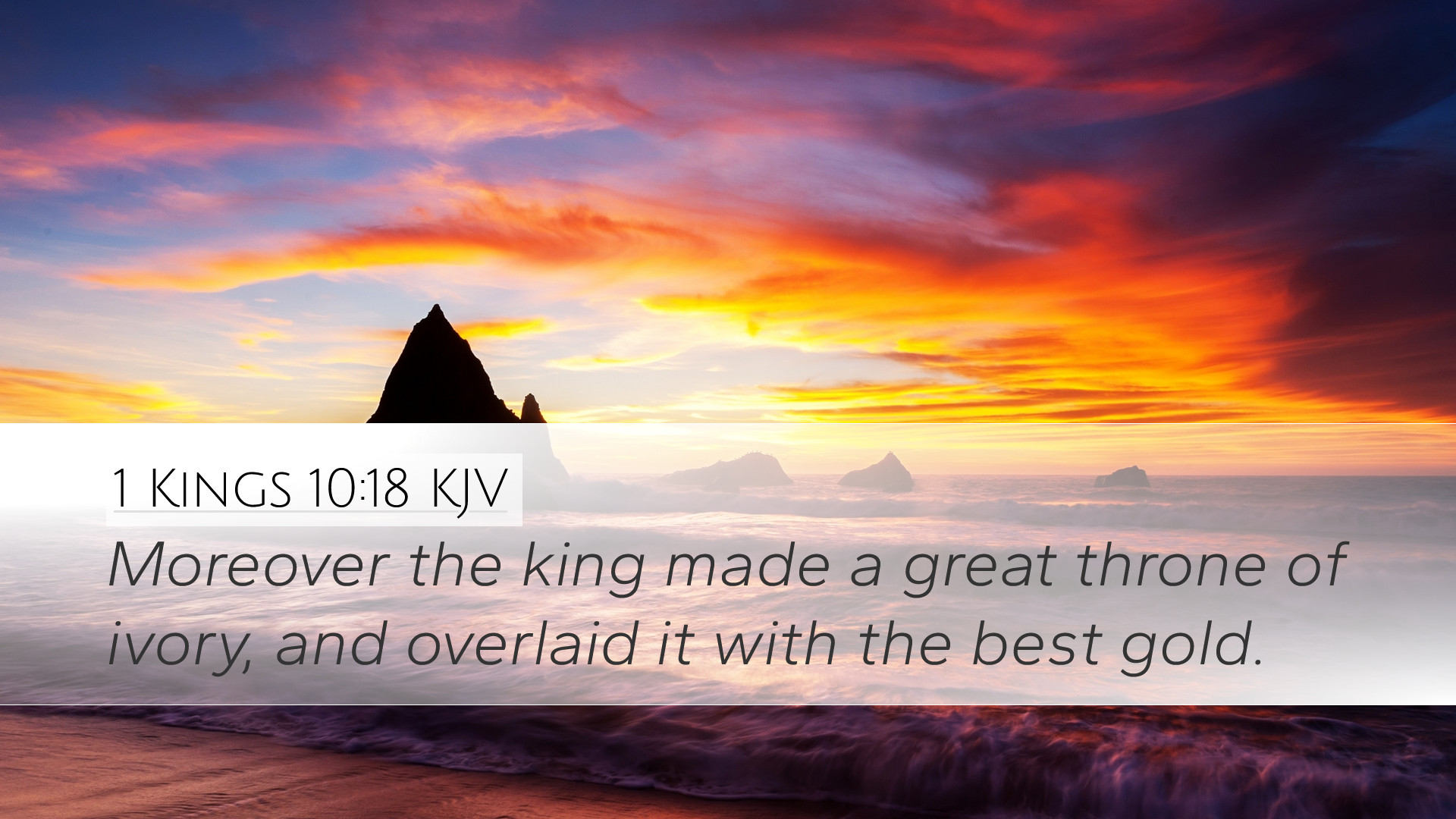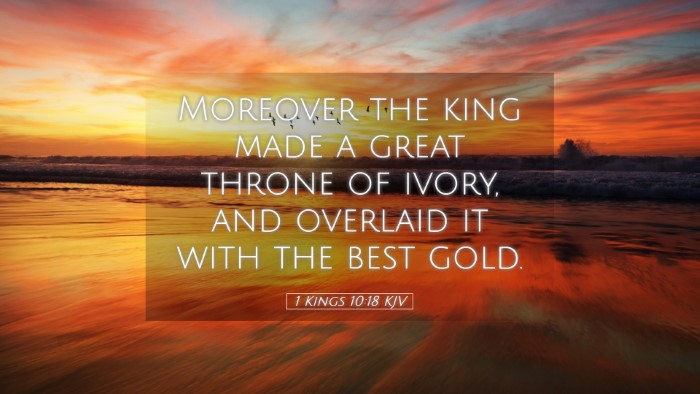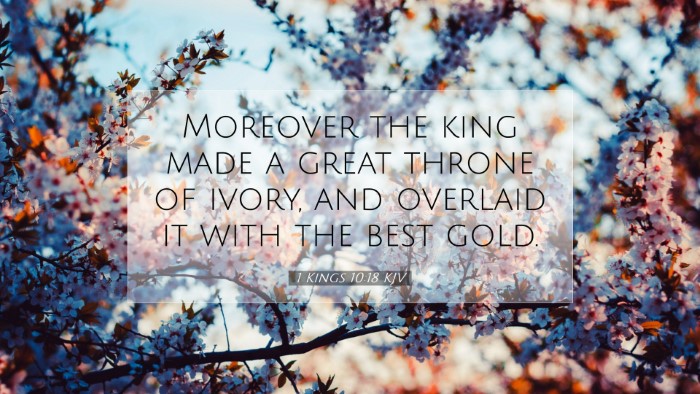Commentary on 1 Kings 10:18
Verse Reference: 1 Kings 10:18 - "Moreover the king made a great throne of ivory, and overlaid it with the best gold."
Introduction
This verse introduces us to one of the hallmarks of King Solomon's reign: the grandeur and opulence of his throne, a symbol of his wisdom, wealth, and the glory of God's favor upon Israel during his kingship. Commentaries from esteemed biblical scholars offer valuable insights into the significance of this throne and what it reveals about Solomon's reign and the context of the passage.
Solomon's Throne: A Symbol of Authority
Matthew Henry comments on the throne's importance as a representation of royal authority, suggesting that the grandiosity of the throne was intended to reflect not only Solomon's status but also the power of God that had established him as king. The use of ivory and gold points to unparalleled wealth and an extravagant lifestyle, which were both a matter of state and a personal expression of Solomon's wisdom in governance.
Henry emphasizes that the throne is not merely a seat but a proclamation of the king's exalted position, meant to instill awe and respect in those who presented themselves before the monarch. This reflects not only upon Solomon’s reign but also illustrates the divine order established by God for rulers—a theme that resonates through the Scriptures.
The Materials of the Throne
Albert Barnes notes the significance of the materials used: ivory and gold. Ivory represents purity and strength, while gold symbolizes value and permanence. These materials were costly and spoke volumes about the wealth of Solomon, driving home the point that he was a king like no other in Israel's history.
Furthermore, the overlay of gold on the ivory is significant as it implies a layer of protection and grandeur. Just as God’s covenants with Israel were intended to cover the sins of His people, the gold that covered the ivory symbolizes the glorious presence of God's favor upon Solomon and his kingdom, elevating Israel among the nations.
Context within the Chapter
In the wider context of 1 Kings 10, this verse serves as a bridge between the story of the Queen of Sheba's visit and the broader narrative of Solomon’s reign, providing insight into his wisdom and prosperity. Adam Clarke suggests that the mention of Solomon’s throne sets the stage for understanding the splendor of the kingdom he ruled, which was a direct result of the wisdom granted to him by God.
Clarke highlights that Solomon's wealth, demonstrated through such monumental structures as his throne, was not merely for personal gain but was meant to reflect God’s covenant faithfulness and the blessings promised to Israel. The external wealth is, therefore, a pointer to the moral and spiritual failures that ultimately marred the latter part of Solomon's reign.
Spiritual Implications and Lessons
As scholars reflect on Solomon’s throne, they draw parallels with the spiritual authority that believers hold today. The quality and magnificence of Solomon’s throne remind us of the Kingdom of God and the call for righteousness and justice that leaders, both secular and spiritual, are to uphold.
John Gill points out that while Solomon’s throne was physical, believers today are called to seek the eternal throne established by Christ. This contrast serves as a critical reminder for contemporary Christians that earthly splendor must be reflected in spiritual holiness and right living.
- Divine Appointment: Every leader is divinely appointed, and their rule should reflect God’s justice and righteousness.
- Leadership as Service: The ostentation of Solomon's throne can serve as a warning against the pitfalls of pride and corruption in leadership.
- Eternal Perspective: Believers are reminded that while earthly kingdoms may seem splendid, the true Kingdom awaits beyond the material realms.
Conclusion
In 1 Kings 10:18, the description of Solomon's throne encapsulates a multitude of themes—style, authority, wealth, and, ultimately, the relationship between God and His chosen ruler. The insights provided by Matthew Henry, Albert Barnes, and Adam Clarke draw readers into a deeper understanding not only of the historical context but also of the spiritual implications for leaders and believers alike.
As such, this verse serves as a rich resource for pastors, students, theologians, and scholars seeking to grasp the depth of biblical truths within the narrative of Solomon's reign, illuminating the path of divine wisdom that leads toward humility and service in the pursuit of godliness.


